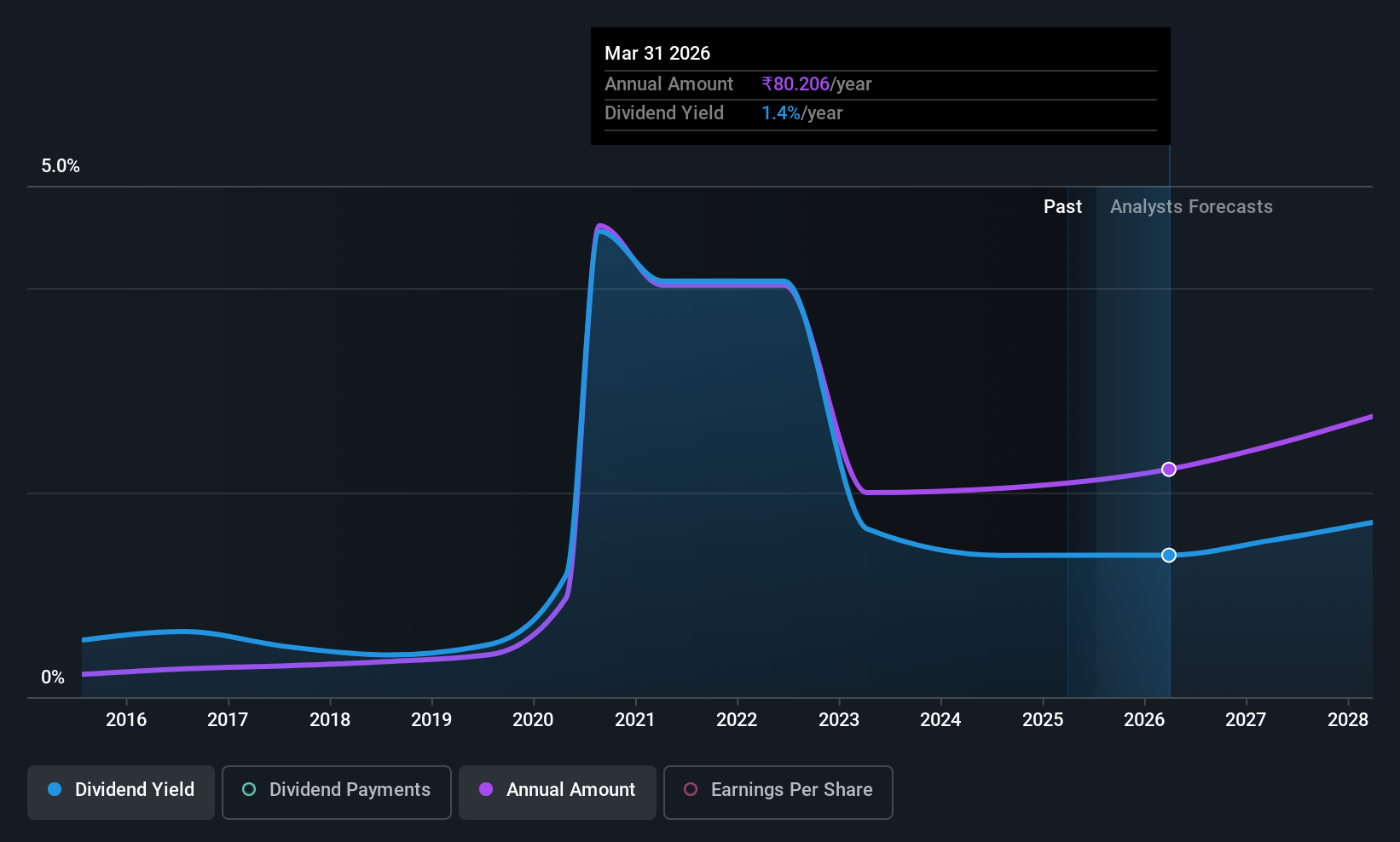Britannia Industries (NSE:BRITANNIA) Has Announced That It Will Be Increasing Its Dividend To ₹75.00
The board of Britannia Industries Limited (NSE:BRITANNIA) has announced that it will be paying its dividend of ₹75.00 on the 10th of September, an increased payment from last year's comparable dividend. This will take the annual payment to 1.3% of the stock price, which is above what most companies in the industry pay.
Britannia Industries' Future Dividend Projections Appear Well Covered By Earnings
While it is great to have a strong dividend yield, we should also consider whether the payment is sustainable. Before making this announcement, Britannia Industries' was paying out quite a large proportion of earnings and 86% of free cash flows. This indicates that the company is more focused on returning cash to shareholders than growing the business, but it is still in a reasonable range to continue with.
The next year is set to see EPS grow by 46.2%. Under the assumption that the dividend will continue along recent trends, we think the payout ratio could be 65% which would be quite comfortable going to take the dividend forward.

Check out our latest analysis for Britannia Industries
Dividend Volatility
While the company has been paying a dividend for a long time, it has cut the dividend at least once in the last 10 years. Since 2015, the dividend has gone from ₹8.00 total annually to ₹75.00. This means that it has been growing its distributions at 25% per annum over that time. Despite the rapid growth in the dividend over the past number of years, we have seen the payments go down the past as well, so that makes us cautious.
The Dividend Has Growth Potential
Given that the dividend has been cut in the past, we need to check if earnings are growing and if that might lead to stronger dividends in the future. It's encouraging to see that Britannia Industries has been growing its earnings per share at 9.2% a year over the past five years. The payout ratio is very much on the higher end, which could mean that the growth rate will slow down in the future, and that could flow through to the dividend as well.
In Summary
In summary, while it's always good to see the dividend being raised, we don't think Britannia Industries' payments are rock solid. While we generally think the level of distributions are a bit high, we wouldn't rule it out as becoming a good dividend payer in the future as its earnings are growing healthily. We don't think Britannia Industries is a great stock to add to your portfolio if income is your focus.
Companies possessing a stable dividend policy will likely enjoy greater investor interest than those suffering from a more inconsistent approach. Meanwhile, despite the importance of dividend payments, they are not the only factors our readers should know when assessing a company. As an example, we've identified 1 warning sign for Britannia Industries that you should be aware of before investing. If you are a dividend investor, you might also want to look at our curated list of high yield dividend stocks.
Valuation is complex, but we're here to simplify it.
Discover if Britannia Industries might be undervalued or overvalued with our detailed analysis, featuring fair value estimates, potential risks, dividends, insider trades, and its financial condition.
Access Free AnalysisHave feedback on this article? Concerned about the content? Get in touch with us directly. Alternatively, email editorial-team (at) simplywallst.com.
This article by Simply Wall St is general in nature. We provide commentary based on historical data and analyst forecasts only using an unbiased methodology and our articles are not intended to be financial advice. It does not constitute a recommendation to buy or sell any stock, and does not take account of your objectives, or your financial situation. We aim to bring you long-term focused analysis driven by fundamental data. Note that our analysis may not factor in the latest price-sensitive company announcements or qualitative material. Simply Wall St has no position in any stocks mentioned.
About NSEI:BRITANNIA
Britannia Industries
Manufactures and sells various food products in India and internationally.
Flawless balance sheet established dividend payer.
Similar Companies
Market Insights
Community Narratives




